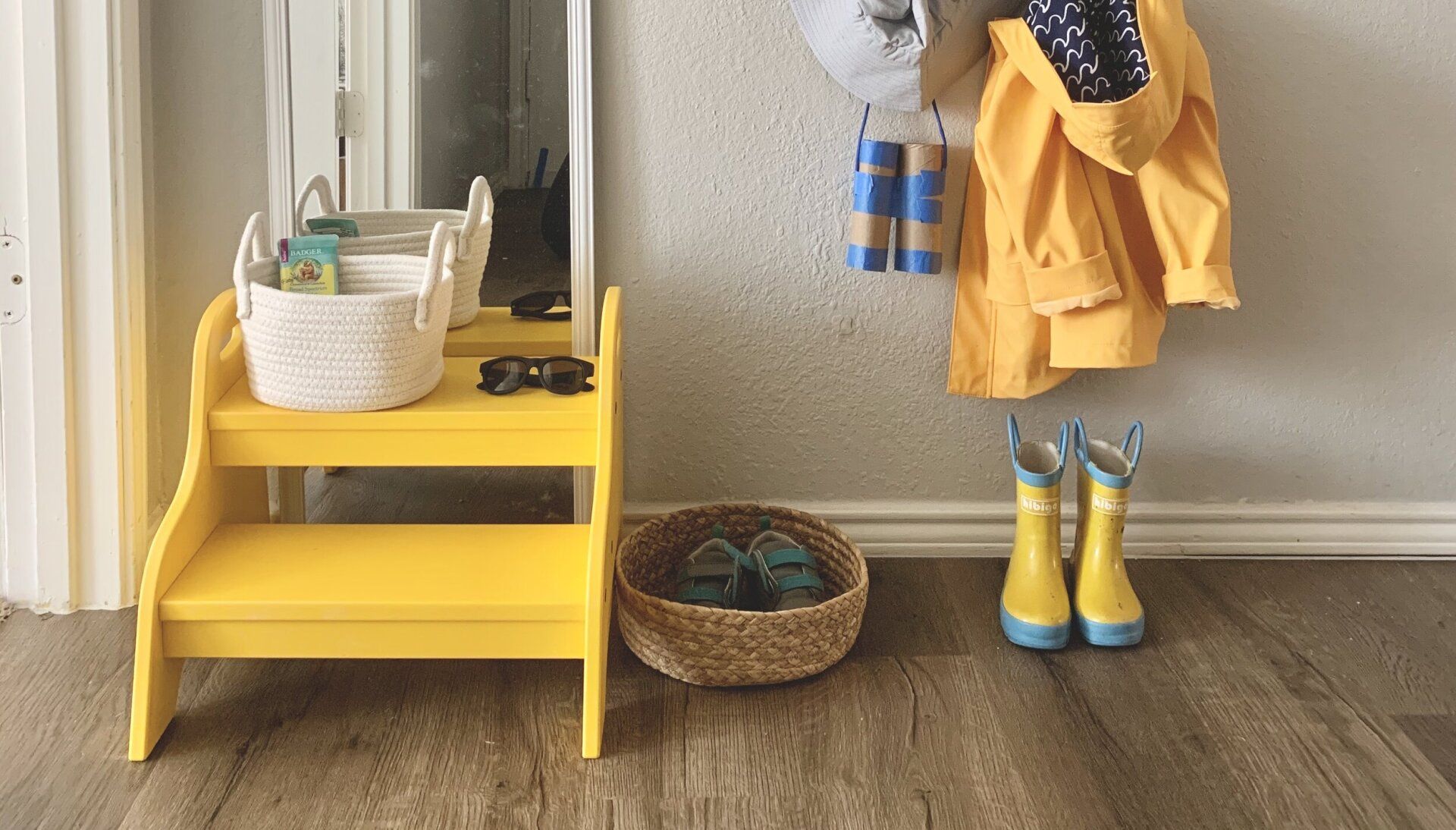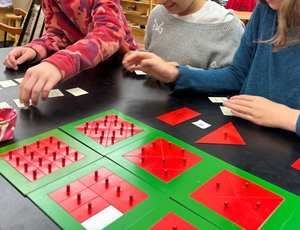How to Support the Work of Your Montessori Student

A fresh new school year comes with lots of excitement, and often lots of questions from new and returning families alike. One of the most frequent questions we receive is, “How can we support Montessori education at home?”
First of all, we love this question! We know that even busy families want to do what they can to support the hard work of their children and their children’s teachers. We are here to tell you that your support means everything, and it honestly doesn’t take much to make a huge difference.
What you definitely do NOT need to do:
- Purchase Montessori materials for use at home - in fact, we recommend strongly against doing so. Montessori materials were developed to be used in a very specific manner and using them with children requires intensive training. While there is certainly an allure to the beautiful wooden learning materials, we believe it’s best to allow trained and credentialed Montessori educators guide children in using them in the way they were intended to be used.
- Buy any fancy organization systems (or really, buy anything at all) - Montessori at home need not cost a cent. Supporting the philosophy at home is more about a shift in approaches and perspective and less about buying more stuff to enrich the environment.
- Push for academic achievement - we believe that with the right support and guidance, children make great strides in academic areas all on their own and in their own time. There’s no need to drill math facts or push for your child to be reading by a certain age; learning is not linear and each individual requires the time and space to arrive at milestones when they are ready. Your child’s teacher will certainly let you know if there are academic skills that can be supported, but generally speaking, children work so hard at school it’s okay to let them take a break at home.
What is really helpful:
- Learn about Montessori philosophy. There are lots of ways to do this! We occasionally hold parent education sessions at the school. These events can be great ways to connect with other families, spend time getting to know our staff, and also one of the best ways to learn more about what Montessori means and how it’s an excellent approach for teaching children.
- We know not everyone has the space in their schedule to attend these sessions, but there are other great resources out there. One of the best books we recommend is Montessori: the Science Behind the Genius by Angeline Stoll Lillard.
- Find educational philosophy articles on the American Montessori Society website.
- Additional great resource articles for parents can be found on the Association Montessori Internationale/USA website.
- Volunteer at the school. We have talked a lot about partnering with your child and our school. Here are some reminders of opportunities for all talents and schedules:
- Chaperone on field trips/”going outs”
- Help with Material Making Wednesdays
- Serve as a parent liaison (Room Advisor) for your child’s classroom
- Ask your child’s teacher what support would be helpful to them
- Join Ollie's Club and help out with special events
- Give a presentation to children about your job, culture, or hobby
- Listen to emergent readers
- Start a "Montessori Book Club" with other parents
- Meet for coffee after drop off with other parents
- Attend Parent Education Nights
- Pick up a paint brush or tool and help when needed
- “Follow the child.” What the Montessori approach really boils down to, is honoring the child as a whole human being that is deserving of the same respect as any adult. Learning to shed our preconceived notions of what parenting and teaching means and considering new ways of doing things can be challenging at first, but the long-term benefits are substantial for everyone involved.
We want to inspire you to encourage your child to be more independent. The more they can do for themselves (including making their own choices), the better. Nurturing a sense of independence is empowering for the child and, believe it or not, less work for you! Allowing children independence and freedom does not, however, mean they get to make all the decisions; there has to be a balance!
- If you are happy with the education your child is receiving, spread the word! We believe that Montessori has the power to bring great change to the world, one child at a time. Our approach to education isn’t about memorizing facts and scoring well on tests; we aim to nurture kind, creative, and empowered members of society. The best way to expand our work is to reach more children.
If you’ve been happy with your child’s education at our school, reach out and let us know. There are plenty of ways to leave reviews for potential families to read. Spreading the word can also be as simple as talking openly with friends at your neighborhood birthday parties or weekend soccer games. There are plenty of families out there looking for the solutions that Montessori provides.
We hope this post has been helpful, but if you have any questions or ideas, please let us know. As parents, you are your child’s first and most important teachers. Together, we can work to create a more beautiful world.






